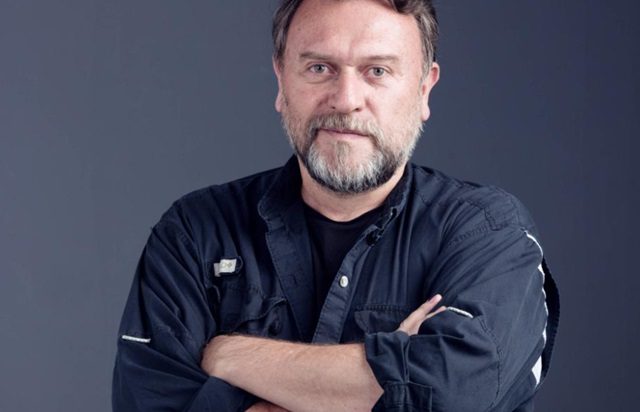BTN News: It’s been 25 years since Jaime Garzón was silenced by the military-driven right wing in Colombia, yet his words, ideas, sharp wit, and unforgettable characters still echo through time, becoming a cherished ritual for many each August. As the nation reflects on his legacy, the phrase “how much we miss Garzón” resonates deeply, not just as a lament for his loss, but as a recognition of the unique mirror he held up to Colombia’s cultural, social, and political identity.
Jaime Garzón was more than a comedian; he was a visionary who used humor as a powerful tool to reflect the truths of Colombian society. His satirical lens captured the harsh realities of a country where the privileged cling tightly to their power, unwilling to budge even as the masses struggle for change. Garzón’s satire highlighted the entrenchment of an elite class that, in its quest to maintain the status quo, remains resistant to any form of progress that threatens their comfort. His death was not just an act of violence; it was a deliberate attempt to silence a voice that relentlessly exposed the hypocrisy of the powerful.
In Colombia, a nation where militarism permeates every aspect of life, Garzón’s laughter was a form of rebellion. The culture is one where military solutions are often sought for social unrest, where violence is normalized, and where the citizenry is expected to comply without question. In this context, Garzón’s humor was subversive, challenging the very foundation of a society built on obedience and force. His jokes weren’t just funny—they were dangerous, because they made people think. And in a country like Colombia, where critical thought can be a death sentence, Garzón’s intellectual courage made him a target.
Colombians, despite the veneer of a jovial culture, often mask a deep-seated frustration through humor. The airwaves are filled with laughter, but much of it is tainted with homophobia, racism, sexism, classism, and xenophobia—laughing at the expense of the marginalized. This “humor” is less about joy and more about reinforcing the existing social order. Garzón, however, flipped the script. He didn’t laugh at the downtrodden; he laughed with them, using his platform to critique those in power. His humor wasn’t about belittling the vulnerable; it was about shining a light on the injustices perpetrated by those who wield power without accountability.
Garzón’s humor was a form of critical thinking, a way to make sense of a country in turmoil. Through his characters, he dissected the political landscape, exposing the absurdity and cruelty of those in power. His satire was not just entertainment; it was a form of resistance, a way to confront the harsh realities of life in Colombia with wit and intelligence. In a nation where the powerful are accustomed to going unchallenged, Garzón’s humor was a direct affront to their authority.
In a country where “thinking can cost you your life,” Garzón’s legacy is a testament to the power of ideas. His prophetic words continue to resonate: “I propose that, together, we look back and find the reasons why the country is the way it is.” His vision for a peaceful Colombia, where life and mutual respect are valued, remains as relevant today as it was when he first uttered them. His question, “In Colombia, the question is: Who is going to kill us? The guerrillas, the paramilitaries, the drug traffickers, or the politicians?” still lingers in the air, a chilling reminder of the dangers faced by those who dare to challenge the status quo.
The best way to honor Jaime Garzón is to keep his spirit alive by engaging with his work, thinking critically about the issues he addressed, and questioning the power structures that still dominate Colombian society. A great starting point is the beautifully crafted graphic novel “Garzón, el duelo imposible,” created by his brother Alfredo Garzón. This work not only pays tribute to Jaime’s legacy but also invites readers to reflect on the ongoing struggles for justice and equality in Colombia.
Jaime Garzón’s legacy lives on, not just in the memories of those who knew him, but in the hearts and minds of those who continue to fight for a better Colombia. His life and work remind us that laughter can be a powerful weapon against oppression, and that the true revolution lies in the courage to think, to question, and to demand change.


